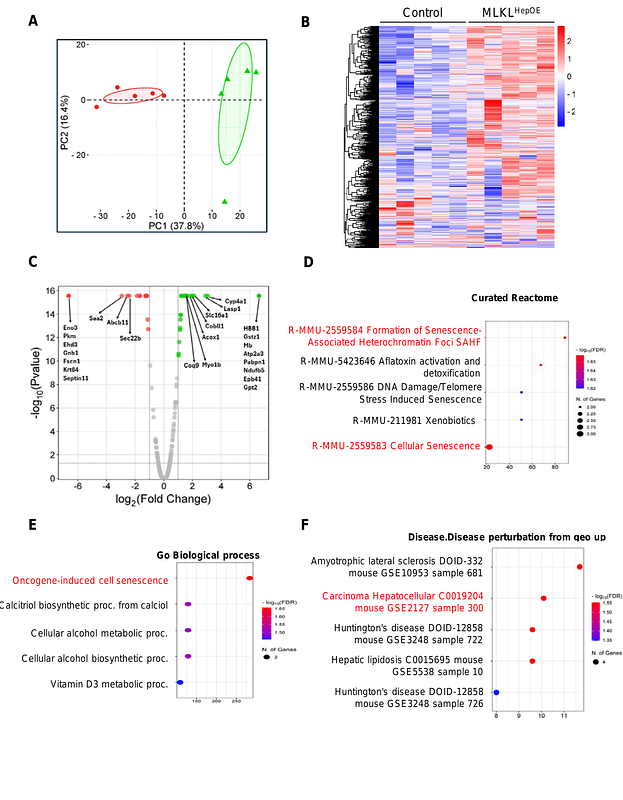A Non-canonical Role for Hepatocyte MLKL in Promoting Mitochondrial Dysfunction and Senescence in the Aging Liver

A Non-canonical Role for Hepatocyte MLKL in Promoting Mitochondrial Dysfunction and Senescence in the Aging Liver
Mohammed, S.; Jiang, C.; Pennington, T.; Bhaskaran, S.; Ohene-Marfo, P.; Georgescu, C.; Pitts, K.; Tran, A.; Peng, Z.; Singh, A.; Yang, Z.; Li, T.; Hannafon, B.; Houchen, C.; Wren, J. D.; Galvan, V.; Ahsan, N.; Kinter, M.; Lewis, T. L.; Deepa, S. S.
AbstractLiver aging is characterized by chronic inflammation and metabolic dysfunction that contributes to the progression of metabolic dysfunction-associated steatotic liver disease (MASLD). Necroptosis, a form of inflammatory cell death, is activated in aging livers, and genetic (Ripk3-/- or Mlkl-/- mice) or pharmacological (RIPK1 inhibitor necrostatin-1s) inhibition of necroptosis attenuates liver inflammation and pathology. However, the cell type-specific role of necroptosis in liver aging remains unclear. Given that MLKL is expressed in hepatocytes, and its expression increases with age, we generated hepatocyte-specific MLKL-overexpressing mice (MLKLHepOE) to determine its role in liver aging. Unexpectedly, MLKL overexpression in hepatocytes did not induce necroptosis, but instead upregulated markers of cellular senescence (cell cycle arrest genes and SASP factors), increased macrophage infiltration, and elevated M1 macrophage marker expression. Electron microscopy and mitochondrial analyses revealed abnormal mitochondrial morphology, elevated oxidative stress, and disrupted mitochondrial dynamics, while lipidomics demonstrated alterations in hepatic lipid metabolites. In agreement with our observations in MLKLHepOE mice, MLKL overexpression in AML12 hepatocytes impaired mitochondrial respiration, increased proinflammatory extracellular vesicle (EV) release, and induced senescence markers, without triggering cell death. Together, these findings reveal a non-lethal, non-necroptotic role for MLKL in promoting hepatocyte senescence and metabolic dysfunction via mitochondrial impairment and EV-mediated inflammation. Our study highlights MLKL as a novel driver of liver inflammaging and a potential therapeutic target for age-related liver disease.